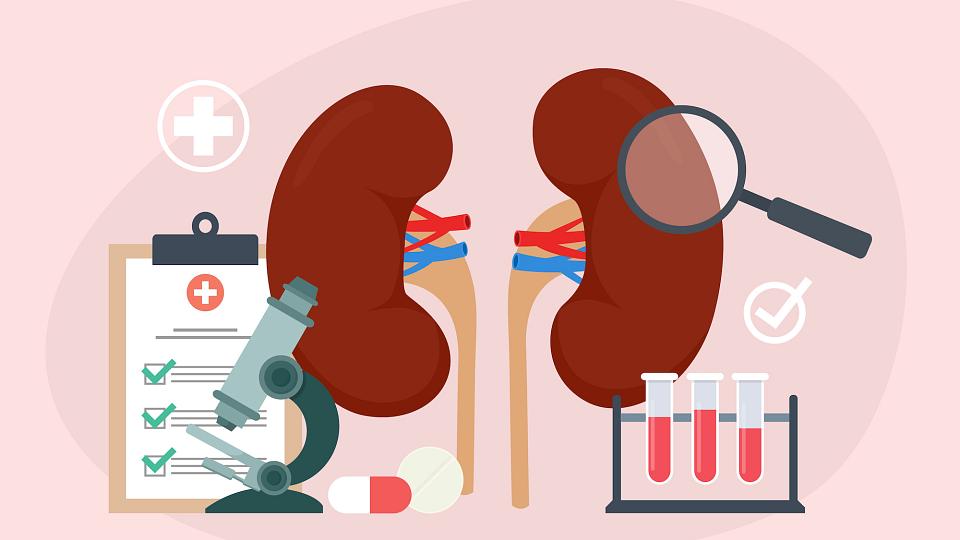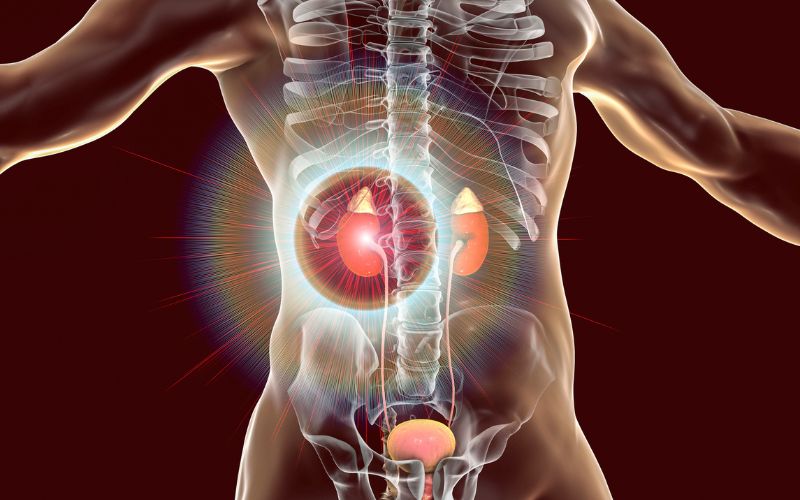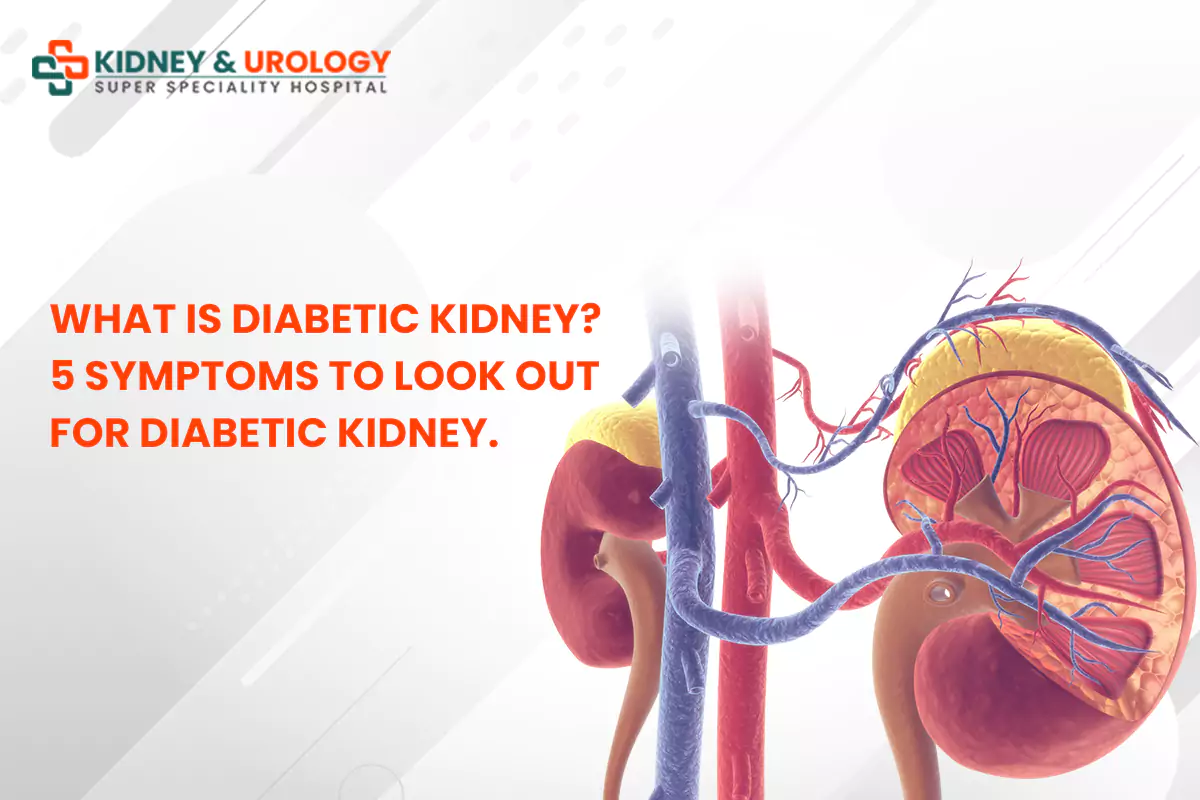What is Focal segmental glomerulosclerosis? Kidney doctor in Haryana
Focal segmental glomerulosclerosis (FSGS) is characterised under a microscope by scarring that affects only some parts of the kidney's filtering units (glomeruli), rather than all of them. Patients with this condition may show symptoms of nephrotic syndrome (excessive protein in urine, swelling, fatigue, and loss of appetite), nephritic syndrome (blood in urine, high blood pressure, and reduced kidney function), or kidney insufficiency.
Early diagnosis and management of FSGS are essential to prevent kidney damage and promote a better quality of life for patients. The specialists at SS Kidney Hospital will go over all you need to know about focal segmental glomerulosclerosis in this post.
What is focal segmental glomerulosclerosis?
Tissue grows on the glomeruli, tiny parts of the kidneys that filter waste from the blood. FSGS can result from different causes.
FSGS is a severe condition that can progress to kidney failure, requiring dialysis or a kidney transplant for treatment. The treatment approach for FSGS depends on the specific type a person has.
Different types of FSGS
There are several types of FSGS:
-
Primary FSGS: Many people with FSGS are diagnosed without a known cause, referred to as primary or idiopathic FSGS.
-
Secondary FSGS: Various factors like infections, drug reactions, diseases such as diabetes or sickle cell disease, obesity, and other kidney conditions can cause secondary FSGS. Treating the underlying issue can often slow kidney damage and potentially improve kidney function over time.
-
Genetic FSGS: This rare form is caused by genetic mutations and is also known as familial FSGS. It is suspected when multiple family members exhibit FSGS symptoms. Familial FSGS can occur even if neither parent has the disease, but each carries a mutated gene that can be inherited.
-
Unknown FSGS: Sometimes, despite thorough evaluation and testing, the root cause of FSGS remains unidentified based on clinical symptoms and diagnostic assessments.
How to identify Focal Segmental Glomerulosclerosis
Focal Segmental Glomerulosclerosis (FSGS) can develop for various reasons:
-
Symptoms: Signs of FSGS include reduced urine production, high blood pressure, foamy urine due to protein, and swelling in the legs, ankles, or around the eyes.
-
Medical Tests: Doctors may conduct urine tests to check protein levels and blood tests to assess kidney function (creatinine and blood urea nitrogen). Imaging tests like ultrasound can also be used to examine the kidneys for abnormalities.
-
Kidney Biopsy: A definitive diagnosis often requires a kidney biopsy, where a small tissue sample is taken and examined under a microscope for signs of FSGS, such as scarring in the kidney filters (glomeruli).
-
Medical History and Evaluation: It is important to understand a person's medical background, including existing conditions and medications, is essential. Family history is also important to determine if genetic factors contribute to FSGS.
-
Specialist Consultation: Diagnosis and treatment of FSGS typically involve nephrologists, who specialise in kidney diseases. They coordinate tests, interpret results, and develop an effective treatment plan tailored to the individual's needs.
What causes Focal segmental glomerulosclerosis?
Focal Segmental Glomerulosclerosis (FSGS) can develop for various reasons:
-
Primary (Idiopathic) FSGS: Often, the exact cause is unclear, termed primary or idiopathic FSGS. It might involve issues with the immune system that lead to scarring of the kidney's filtering units, called glomeruli.
-
Secondary FSGS: This form arises due to other health conditions or factors, including:
-
Other Diseases: Diabetes, sickle cell disease, obesity, and lupus can all contribute to FSGS by impairing kidney function.
-
Genetic FSGS: This rare type is caused by genetic mutations and is also referred to as familial FSGS.
-
Unknown Causes: Occasionally, despite extensive testing, doctors cannot identify a specific reason for FSGS in some people. This area continues to be actively researched.
1. Infections: Certain viral infections, such as HIV, can trigger FSGS.
2. Drugs and Toxins: Some medications and toxins can gradually harm the kidneys.
Risks associated with FSGS
Several factors can increase the chances of developing focal segmental glomerulosclerosis (FSGS):
-
Medical conditions that harm the kidneys: Certain diseases like diabetes, lupus, obesity, and other kidney disorders can heighten the risk of FSGS.
-
Specific infections: Infections such as HIV and hepatitis C can also increase the risk of developing FSGS.
-
Genetic changes: Changes in certain inherited genes within families can raise the likelihood of developing FSGS.
Can we prevent FSGS?
Preventing focal segmental glomerulosclerosis (FSGS) largely depends on addressing the underlying factors that can lead to its development:
1. Manage underlying medical conditions: It's essential to effectively manage conditions like diabetes, lupus, and obesity since they can increase the risk of FSGS. This entails managing diabetes blood sugar levels, taking lupus medicine as directed, and keeping a healthy weight with exercise and a balanced diet.
2. Prevent infections: Infections such as HIV and hepatitis C can heighten the risk of FSGS. To prevent these infections and reduce the risk of getting FSGS, it's necessary to practise safe behaviours including sharing needles and wearing protection during sexual activity.
3. Genetic counselling: If FSGS is related to genetic factors, genetic counselling can be beneficial. This service provides information about the likelihood of passing on genetic mutations and offers guidance on family planning.
4. Regular check-ups: Routine medical exams are essential for monitoring kidney function and identifying any early signs of kidney damage or FSGS. Early detection allows for timely intervention and management to slow down the progression of the disease.
Since numerous variables might affect how quickly an illness progresses, you should discuss your situation with your doctor. Since there is no way to heal the damaged glomeruli, FSGS is a chronic condition. Kidney disease can progress more slowly with treatment. Each person responds to treatment in a different way.. Some FSGS patients steadily deteriorate over time until they have kidney failure. If this happens, they will require dialysis or a kidney transplant to survive. A few individuals with the condition may live for many years with treatment and close observation for any changes.
If you are seeking medical assistance, feel free to contact top urologist in Haryana at SS Kidney Hospital and our expert surgeons will guide you throughout the process.














Request A Callback